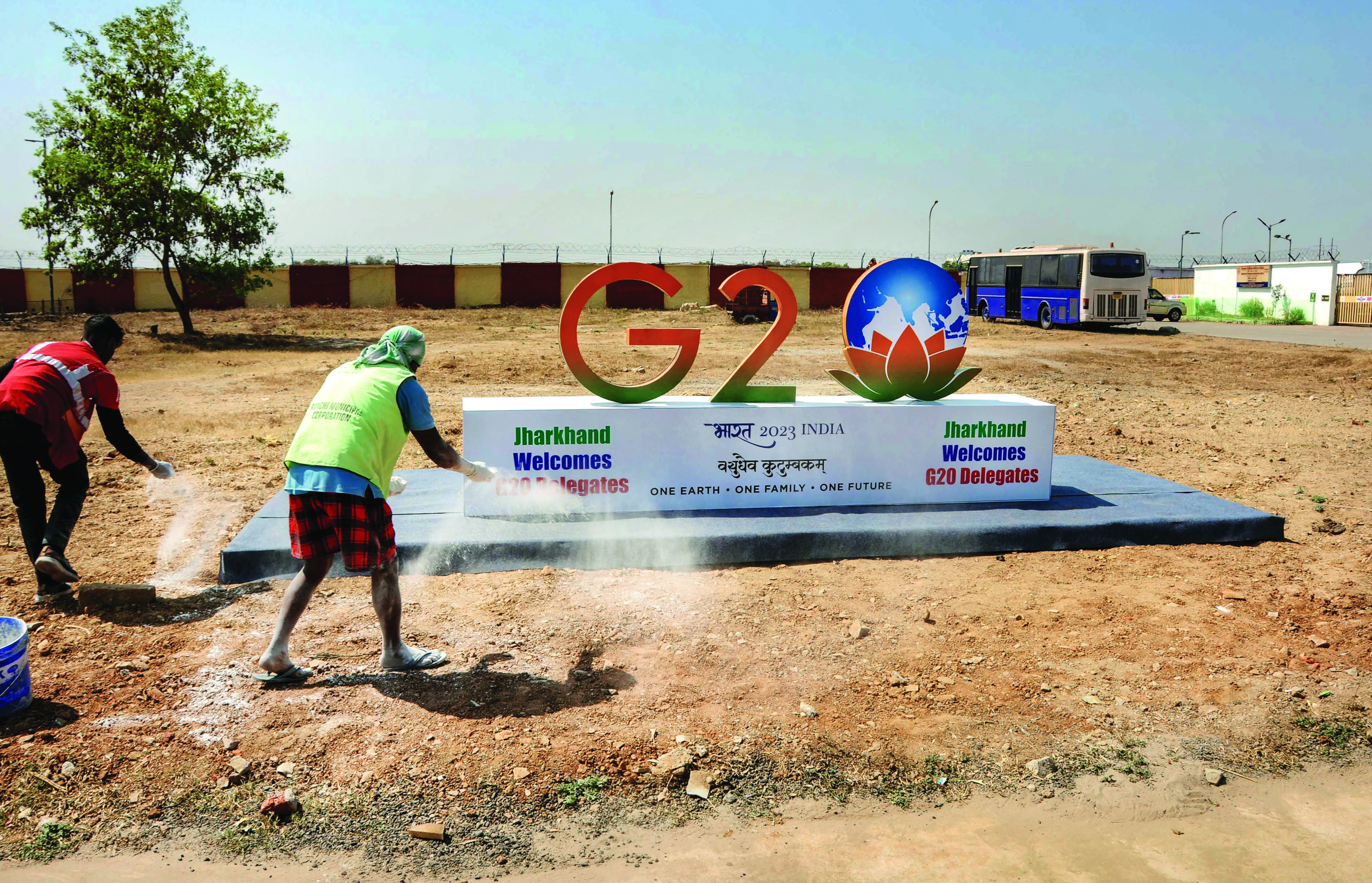Govt rejects politically biased comments on G-20 Finance Ministers’ Chair’s Summary, say sources

New Delhi: India's "balanced" position contributed to finalising the G-20's Bali declaration and its endeavour was to reflect the similar consensus in the meeting of the bloc's finance ministers in Bengaluru last week, official sources said on Tuesday. They also rejected "politically biased" and "motivated" comments on the G-20 finance ministers' chair's summary and outcome document.
The G-20 meeting of finance ministers and Central Bank governors on Saturday was unable to come out with a joint communique following opposition by Russia and China on making any references to the war in Ukraine. Instead, a G-20 Chair's Summary and Outcome Document were released after the two-day meeting of finance ministers and central bank governors. It carried two paragraphs on the war but added that this was not agreed to by Russia and China.
"We have noted some politically biased and motivated comments on the G-20 Finance Ministers' Chair's Summary and Outcome Document. The fact is that it is India's considered and balanced position that contributed in forging the Bali Declaration," said a source without referring to any specific comments.
"In particular, the Prime Minister's statement that this is not an era of war found great resonance. Our endeavour was to reflect the Bali consensus in the G-20 Finance Ministers' Meeting. This was expressed in the Chair's Summary and Outcome Document," it said.
In a media interview, Congress leader Shashi Tharoor, who is a former minister of state for external affairs, criticised India's initial position on Ukraine suggesting that it has been inconsistent and especially referred to India not condemning Russia's violation of international norms.
When asked about the meeting of G-20 finance ministers and central bank governors failing to come out with a joint communique, Tharoor indicated contradictions in India's position on Ukraine.
The G-20 leaders' summit in Bali in November called for an immediate end to the Ukraine conflict, holding that "today's era must not be of war", a formulation that echoed Prime Minister Narendra Modi's message to Russian President Vladimir Putin in September.
"The peaceful resolution of conflicts, efforts to address crises, as well as diplomacy and dialogue, are vital. Today's era must not be of war," the Bali communique said.
India played a key and critical role in bringing consensus amongst all countries on the communique, people familiar with the matter had said then.
In his bilateral meeting with Putin in Uzbekistan on September 16, Modi said "today's era is not of war" and nudged the Russian leader to end the conflict.
The Summary issued after the G-20 meeting in Bengaluru said that member nations "reiterated" their national positions on the Ukraine war.
"Most members strongly condemned the war in Ukraine and stressed that it is causing immense human suffering and exacerbating existing fragilities in the global economy - constraining growth, increasing inflation, disrupting supply chains, heightening energy and food insecurity, and elevating financial stability risk," it said.



